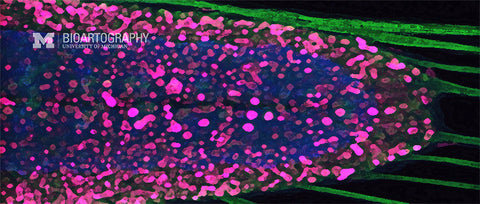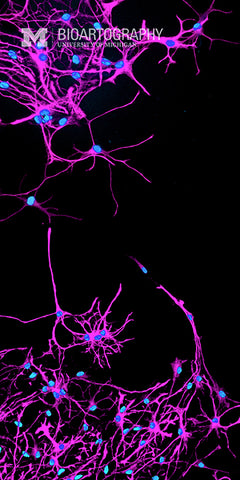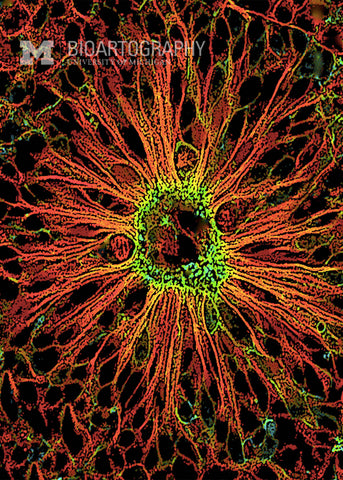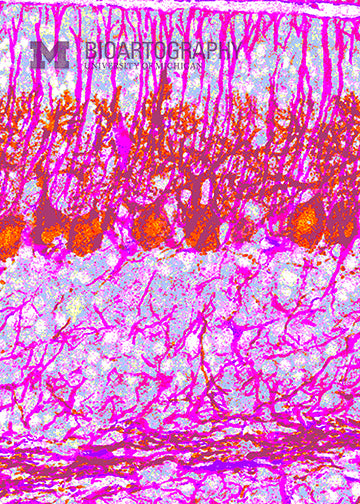
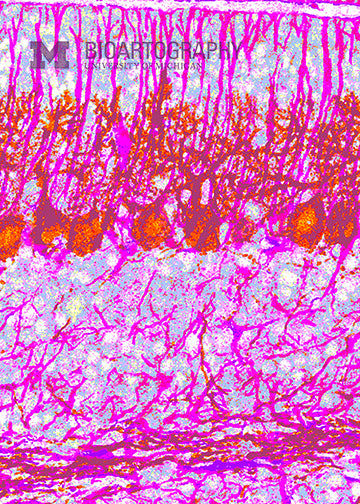
Yuan Zhu, Ph.D., Assistant Professor of Internal Medicine, Division of Molecular Medicine and Genetics, Assistant Professor of Cell and Developmental Biology, University of Michigan Medical School
The cerebellum, home to these Purkinje cells, coordinates repetitive movements such as walking up steps and placing a spoon in your mouth, not your forehead. Purkinje cells are the largest neurons in the brain and make thousands of contacts with other neurons. Purkinje cells are affected in a variety of conditions ranging from alcohol abuse to autoimmune diseases and to genetic mutations (spinocerebellar ataxias, autism). Thus, the study of their development and function is immensely important.

